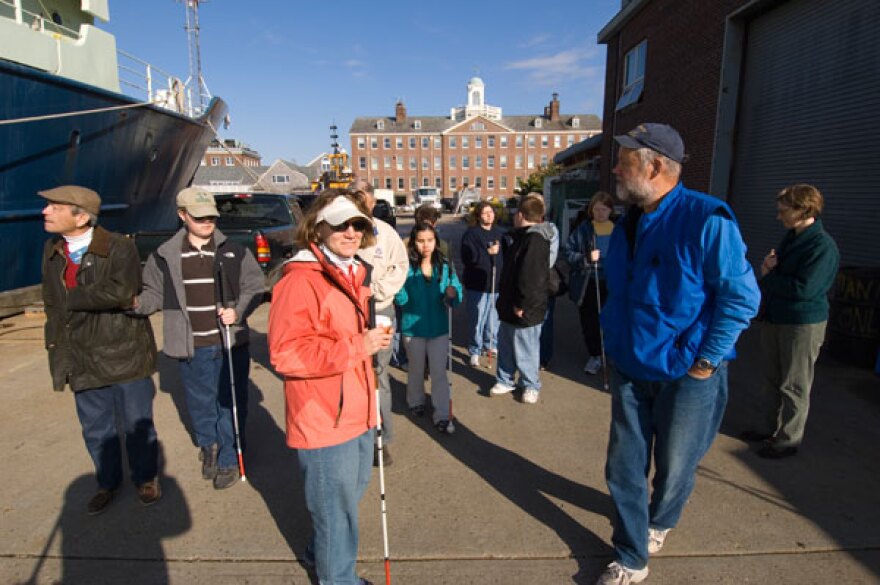As a college student, Amy Bower dreamed of becoming an oceanographer, combining her love of physics and the natural world. A devastating diagnosis almost derailed her.
Amy Bower was an undergraduate, studying physics at Tufts University, when she noticed that her vision was getting blurry. Later, as a graduate student at University of Rhode Island, she got the official diagnosis: she was going blind. Macular degeneration and retinitis pigmentosa would gradually take away her sight.
The news hit her hard. She thought she would have to give up her dream of becoming an oceanographer. In fact, the doctor who gave her the diagnosis advised her to seek an alternative career.
“I was definitely crying when I left that appointment,” says Bower.
Although Bower’s disease may have progressed the way that doctor predicted (she is now legally blind, only able to see the large-scale features of well-lit rooms), her career has not.
Thirty years later, Bower is an oceanographer at the top of her field – a senior scientist at Woods Hole Oceanographic Institution, a leader in her field, going to sea as a chief scientist, and doing groundbreaking research on some of the world’s deepest ocean currents. Software that magnifies and reads her computer screen helps her analyze data, write manuscripts, and ‘read’ emails. She also has a guide dog.
But Bower says people have always been critical to her success. First, there was the specialist who convinced her not to give up on her dream, introduced her to adaptive technologies, and approached each successive obstacle with a can-do attitude. She knows the developer of the screen reading software she uses. She has turned to more senior visually-impaired scientists for tricks and ideas, and has strong relationships with graduate students in her research group, who sometimes serve as her eyes or hands.
Amazingly, Bower says she has never encountered discrimination, or even discouragement, from colleagues. Woods Hole Oceanographic Institution has paid for her special software and travel assistants.
Now, Bower is paving the way for a new generation of visually-impaired young people to pursue science – or whatever they are passionate about. In 2007, Bower teamed up with Kate Fraser, a science teacher at Perkins School for the Blind, and started a program called Ocean Insight. Fraser uses tactile activities and adaptive technologies, like talking thermometers, to get her students doing science. She says their time with Bower is always the highlight of their school year.
Bower encourages all students – visually-impaired and otherwise – to find their passion and never let someone else tell them what they can or can’t do.



